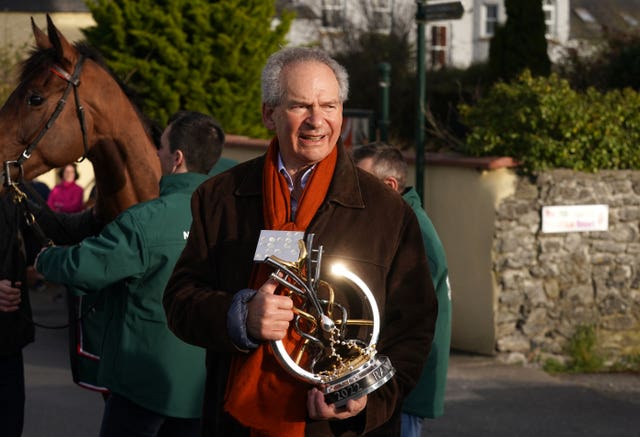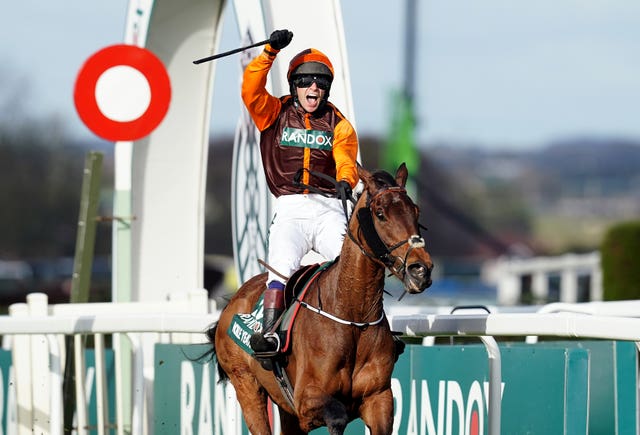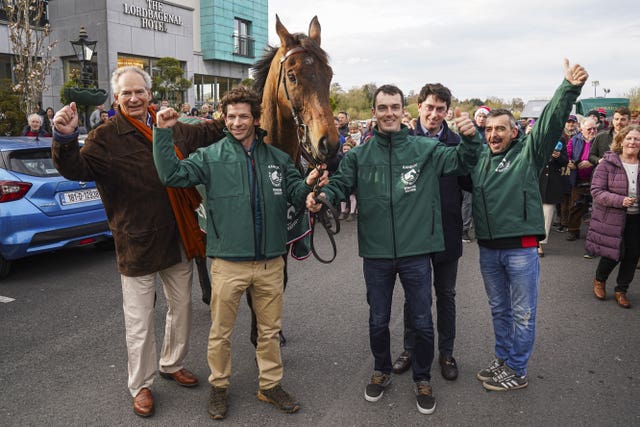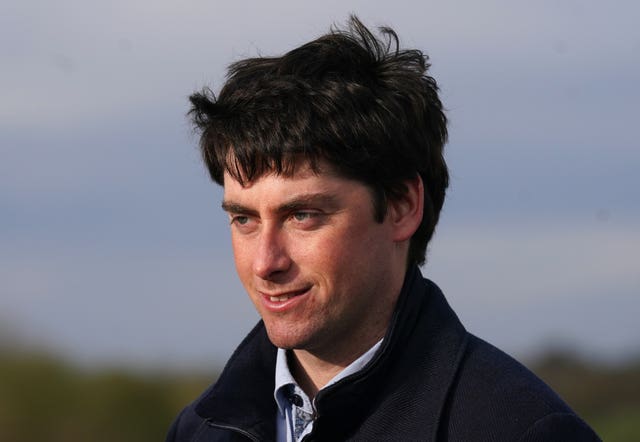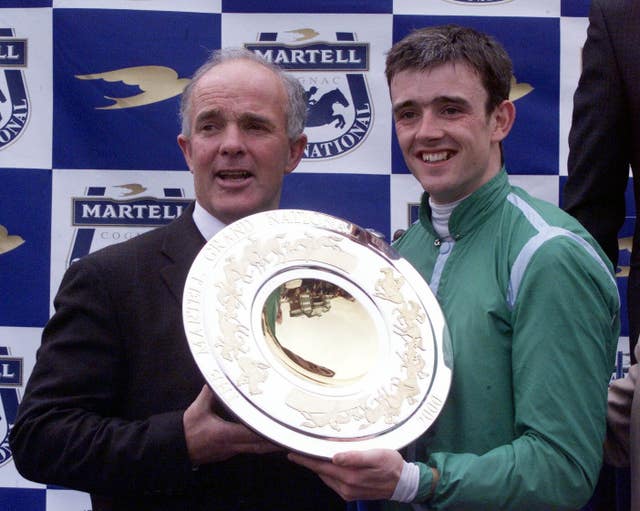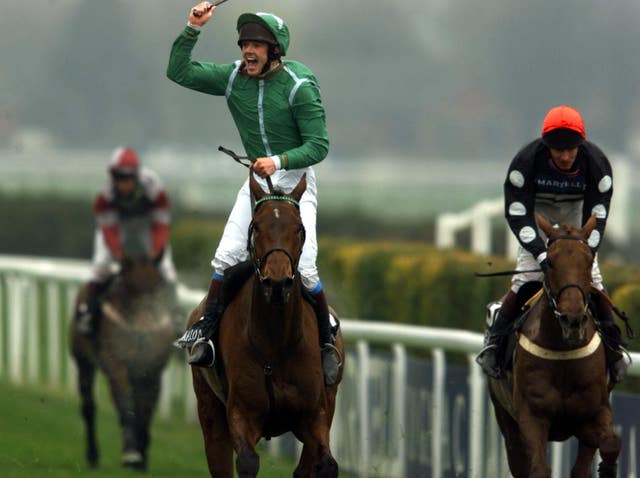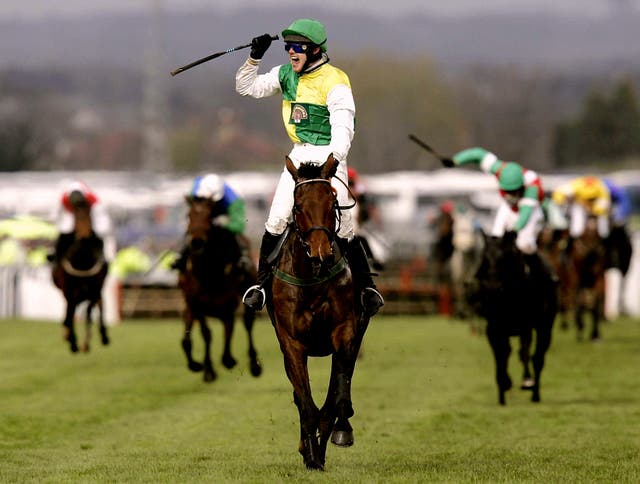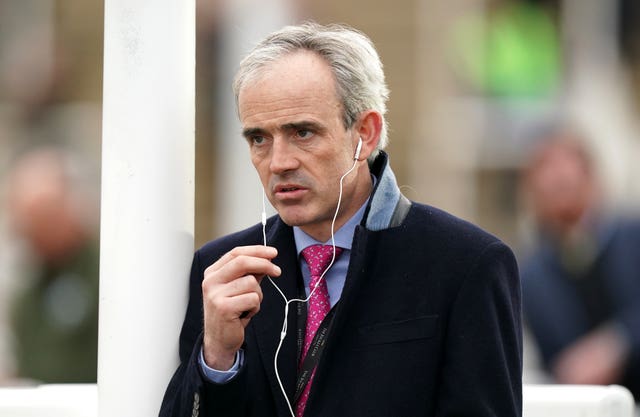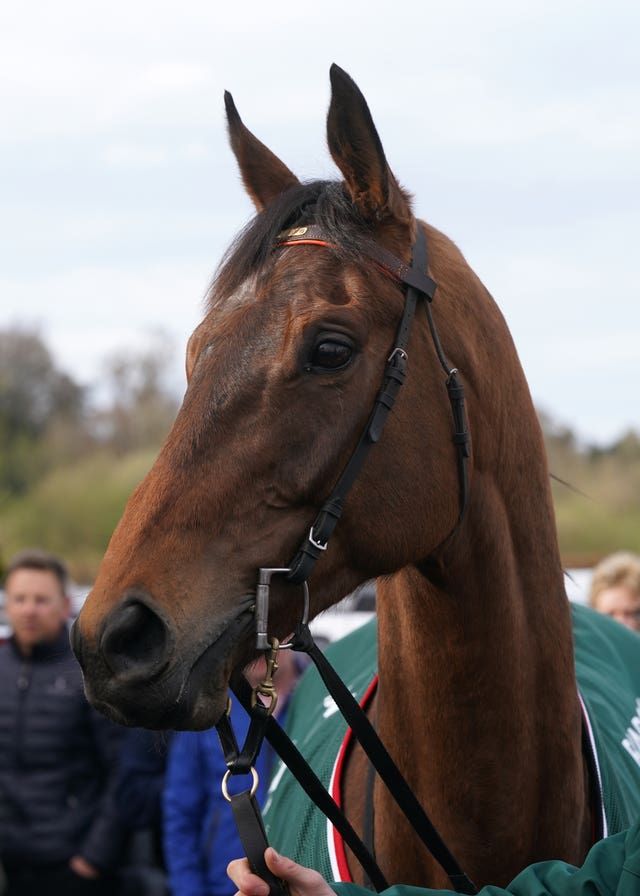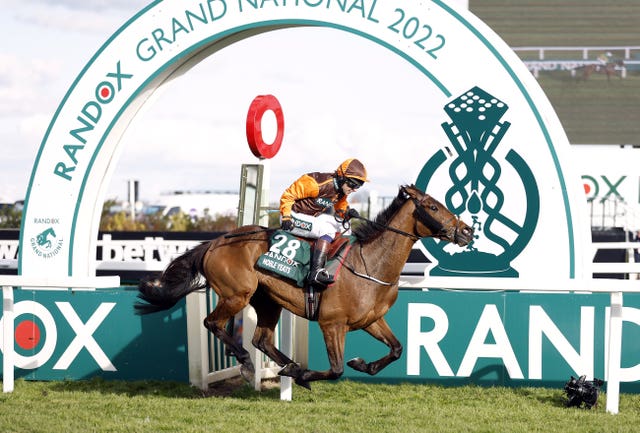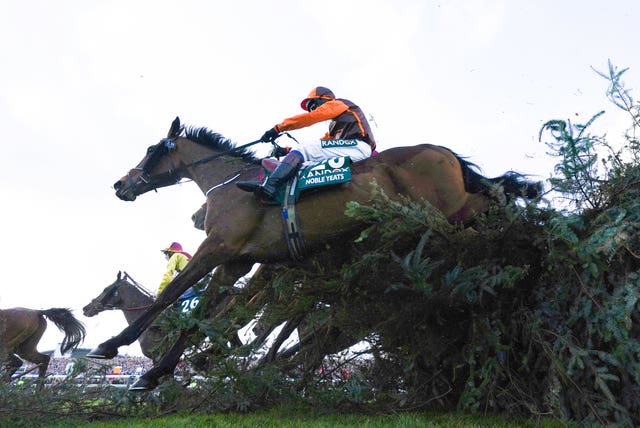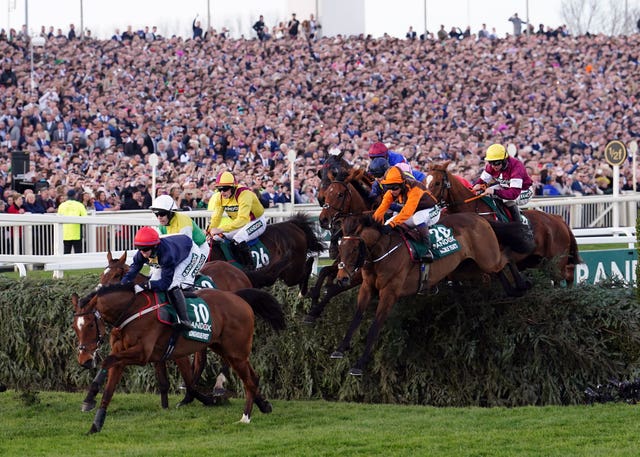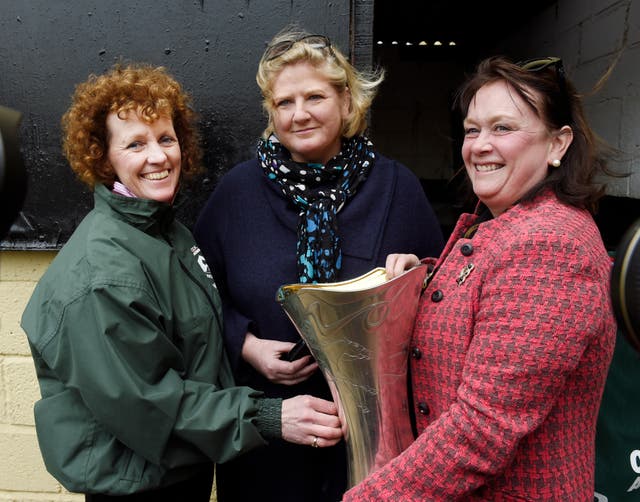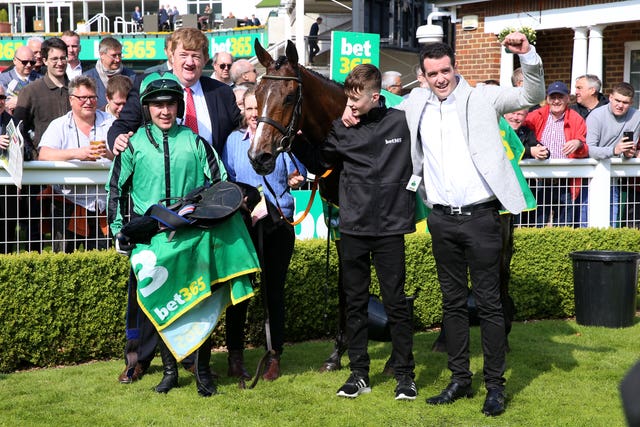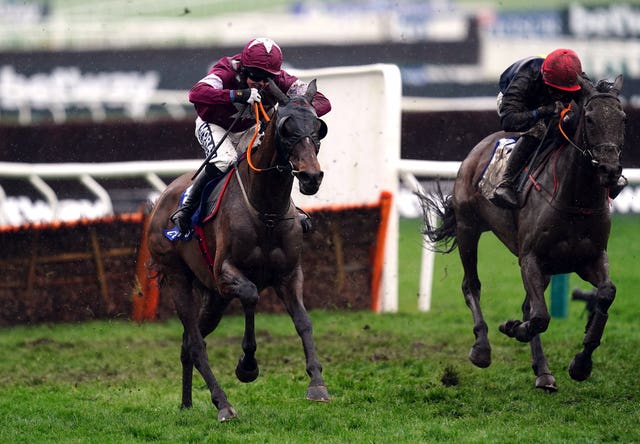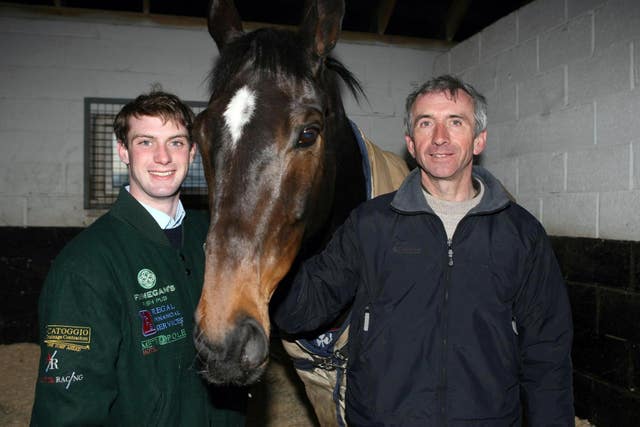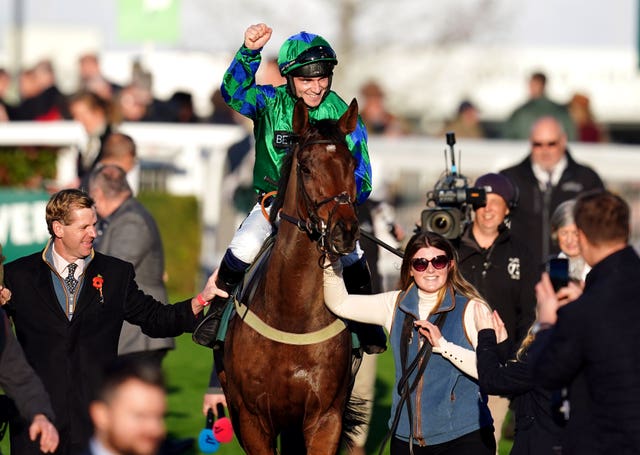Bob Davies reflects on lucky spare that delivered National glory
Bob Davies went to Aintree 45 years ago believing he would not swap his mount for any other in the Grand National – including the mighty Red Rum – and his confidence proved spot-on.
Much of the build-up ahead of the Grand National on April 1, 1978, had surrounded Red Rum’s bid for a fourth win in the race.
Fate took a hand on that overcast, chilly day. The nation’s favourite horse, already pushing 13 years of age, was withdrawn on the morning of the race with a hairline fracture sustained the previous day.
Lucius, trained in Cumbria by Gordon Richards, was to prove one of the greatest spare rides in history.
“Dave Goulding had hurt his back and I was at Wetherby on the Tuesday before the National,” said Davies.
“Ron Barry asked me if I had a ride in the National. He said Lucius was going spare and asked, ‘Do you want me to ring Gordon for you?’.
“When I looked though Lucius’ form and saw what he’d done, I would not have chosen any other horse in the race, including Red Rum.
“Lucius’ best distance was two and half (miles), but he’d won over three. I always believed back then that a National would be won by a horse who was best over two and a half or three, than a horse who had won the Eider or a Welsh National over three-six or four miles.
“If someone had given me a choice of riding a horse who won the Mackeson (now known as the Paddy Power Gold Cup), or a horse that won the Welsh National, I would take the one that won the Mackeson every single time.”
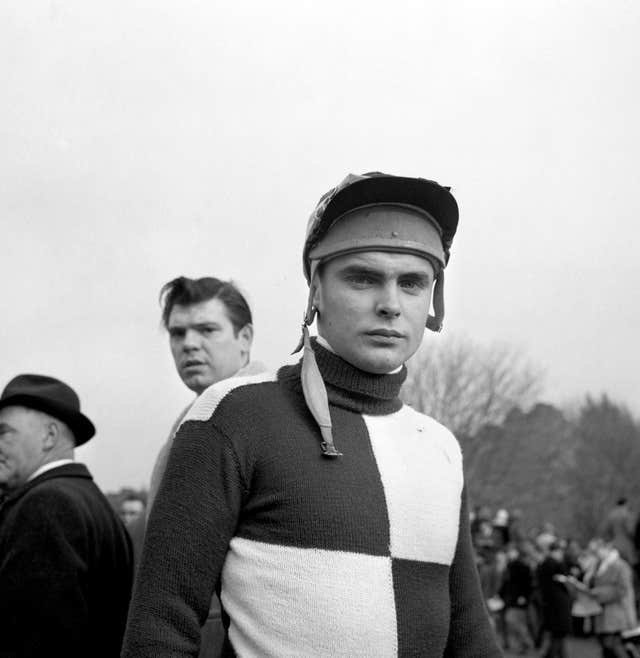
Riding the nine-year-old for the first time, in one of the race’s tightest-ever finishes, Davies’ mount prevailed by a half a length from Sebastian, with Drumroan a staying-on neck further back in third.
“It was a close National. But the thing with him was he couldn’t be in front too soon,” said Davies
“I knew during the race Gordon was getting wild, because he was a lot closer than he wanted me to be. I was always close to the front of the field.”
Having taken the lead following the fall of the much-fancied Tied Cottage on the first circuit, Davies tucked Lucius behind Sebastian, ridden by Ridley Lamb, who was in receipt of 8lb.
With Lord Browndodd, The Pilgarlic, Coolishall and Drumroan all still in with chance two out, Sebastian got away better from both the penultimate and the final fences.
Though Lucius lost a little momentum over the last and was briefly relegated to third by the Coolishall, Lucius kept responding and when the Fiona Whitaker-owned gelding got his head in front just after the elbow, the writing was on the wall.
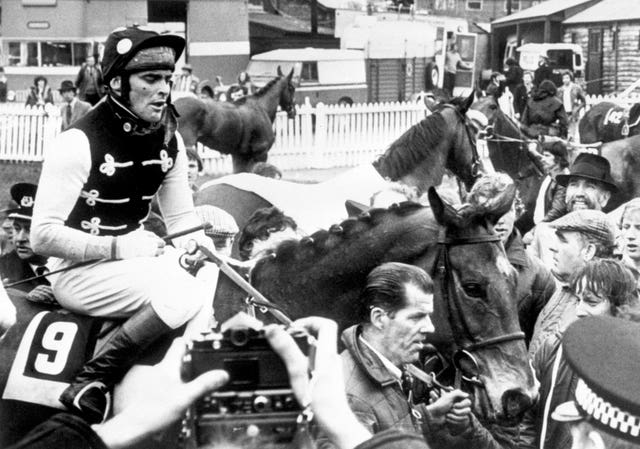
“He was never going to do too much, although in the race, in some respects, he was doing too much probably,” added Davies.
“He was only 14-1 anyway. I had no worries going round. He hit the third, but that was all.
“I only ever sat on Lucius twice, once in the National and once when he was photographed for the Schweppes calendar!”
A year earlier, when Red Rum had won his third National, Duffle Coat had sent Davies crashing to the turf at the first fence, one of only seven rides he had in the world’s most famous race.
“It took me a while to jump all the fences there,” he added. “I think I finally jumped all the fences when I rode Specify at the November meeting. Otherwise I had not jumped the fences between Becher’s Brook and Valentine’s.”
On this day in 1978, three lengths covered the first five in the National, won by the Gordon Richards-trained Lucius. pic.twitter.com/XabFiZDSGE
— PA Racing (@PAracing) April 1, 2014
Davies, now 76, almost won it again with another spare ride the following year when the Nicky Henderson-trained Zongalero was beaten up the run-in by Rubstic, providing Scotland with a first win in the race.
“Zongalero was actually fantastic round there. He didn’t like it the second year, but the first year he was brilliant.
“I have a photograph of him jumping Becher’s and there is about six inches of daylight between his belly and the fence. He never even nodded,” said Davies.
Though riding a Grand National winner is the pinnacle for most jump jockeys, Shropshire farmer’s son Davies “would not swap it” for any of his three championships, sharing it with Terry Biddlecombe in 1968-69, before winning it outright the following season, then again in 1971-72.
“Everyone wants to be champion jockey,” Davies added. “Back then, no yards had more than 50 or 60 horses. That was a big yard.

“Then you had Martin Pipe and, for a while, whoever was going to be riding for him was going to become champion jockey, just on the numbers game.”
Training regimens have changed and while Aintree will always hold a special place in Davies’ heart, some alterations to the big race itself he does not agree with.
“It changed a lot from when I first rode there to when I won the National. When I started, there was very little apron,” he explained,
“The take-off board was back and the fence was straight up. Then more slope and apron was put on.
“The fences have been modified so much now that they are park fences, basically.
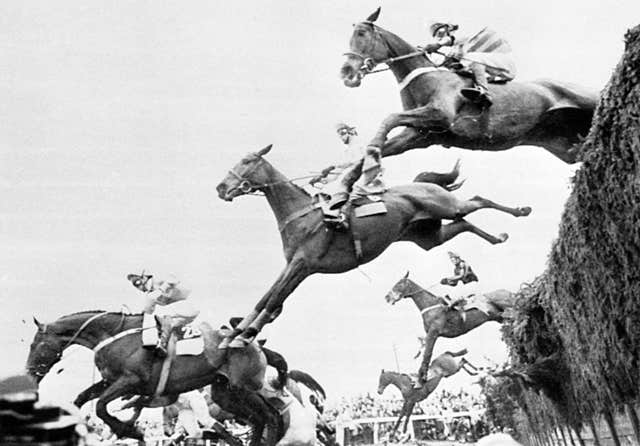
“The horses who jumped the National fences well, generally speaking, backed off into them.
“You didn’t get horses galloping in and taking them on a long stride generally.
“If you watched Red Rum go round there, he shortened into every fence. It has made a hell of a difference to how the race is run.”
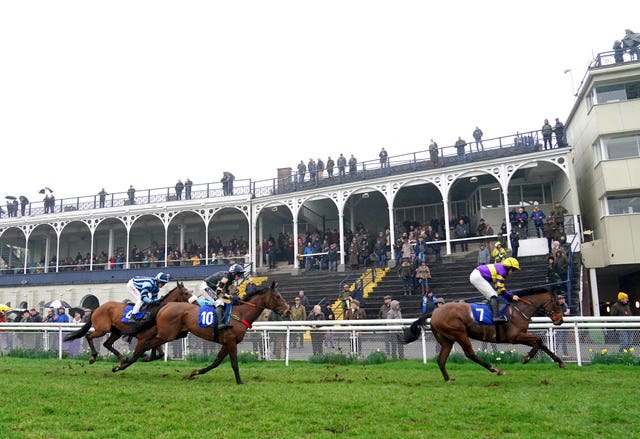
Davies retired from riding in 1982 and soon became one of the first professional jockeys to go into racecourse management, initially as an assistant clerk of the course at Ludlow and Bangor, before taking over permanently in 1984.
“I was at Ludlow for 35 years. We spent a lot of money there without any debt, effectively. We nearly rebuilt it,” he added.
Having retired in 2018, Davies still enjoys helping his successor Simon Sherwood with race planning when he’s not tending his 14-acre garden in Herefordshire.
“Ultimately, we wanted to get people to enjoy it and have a nice day out – that’s the important thing. I’ve enjoyed it and have been lucky enough that I’ve done my hobby all my working life.”


